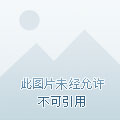Source 丨21 Healthnews21 original work
Author 丨Zhu Ping Intern Wang Xinyi Xu Maonan Sun Houming
Editor 丨Xu Xu
Picture 丨 Figure worm

Recently, global pharmaceutical giant Pfizer announced on its official website that it has voluntarily recalled a popular antihypertensive drug product in the United States, because the nitrosamine content of these drugs is higher than the acceptable level of the human body, which may lead to cancer. This antihypertensive drug is called Accordic and two generic drugs. Accuretic Chinese called quinapril hydrochloride / hydrochlorothiazide tablets, Pfizer believes that this drug ingredient contains nitrosamines, long-term intake of nitrosamines in the human body may increase the risk of human cancer.
On March 25, 21st Century Business Herald reporters learned from Pfizer China that quinapril hydrochloride /hydrochlorothiazide tablets are not sold in China and have no impact on the Chinese market. It is understood that the above drugs are expired patents, and there are already a number of imitation drugs on the market.
It is worth noting that in recent years, drug recalls due to the presence of nitrosamine carcinogens exceeding the standard have occurred from time to time. For example, in July 2021, due to the content of N-nitroso-vareniclan, Pfizer voluntarily recalled 12 batches of smoking cessation drug CHANTIX (Vareniclan) tablets; in October 2021, the FDA issued an announcement that Lupin Pharmaceuticals, a multinational pharmaceutical company in India, voluntarily recalled multiple batches of irbesartan tablets USP, irbesartan and hydrochlorothiazide tablets USP, because the analysis found that the impurity content of these batches of products N-nitrosobesartan was higher than the specification limit.
The fact that the drug can cause cancer will inevitably cause panic among patients. So, what exactly are nitrosamines? What is the impact of excessive nitrosamines in drugs on the human body?
Nitrosamine content exceeds the standard?
On March 22, Pfizer announced on its official website that it has voluntarily recalled a large number of ACCELERATOR (quinapril hydrochloride / hydrochlorothiazide) nationwide, as well as two authorized generic drugs sold by its wholly-owned subsidiary Greenstone, quinapril HCI / hydrochlorothiazide tablets. Pfizer said the recall was due to higher levels of nitrosamines, a carcinogenic impurity in the drug than the acceptable daily intake.
The 21st Century Business Herald reporter checked the official website of Pfizer and found that the recall involved a total of six batches of ACCELERATOR tablets, one batch of quinapril and hydrochlorothiazide tablets, and four batches of quinapril hydrochloride and hydrochlorothiazide tablets, which were distributed to wholesalers and distributors in the United States and Puerto Rico between November 2019 and March 2022. These recalled products are suitable for the treatment of hypertension and can help reduce the risk of cardiovascular diseases such as stroke and myocardial infarction.
Product diagram of the recalled batch Source: Pfizer official website
NDC, batch number, expiration date and configuration details of the recalled product Source: Pfizer official website
A study conducted by the World Health Organization and Imperial College London showed that the number of people with hypertension over the age of 30 has doubled over the past 30 years, with more than half of them not receiving treatment. Therefore, the demand for antihypertensive drugs is also rising. According to IQVIA, ACCURETIC's generic drugs, consisting of enalapril and hydrochlorothiazide, have more than 192,000 users and reached sales of $4.7 million in 2020.
The recall is due to the presence in the product of N-nitroso-quinapril, a compound known as nitrosamine. Although nitrosamines are common in water and foods, such as cured products, roasts, dairy products, and vegetables, which may all contain nitrosamines, according to the U.S. Food and Drug Administration, everyone is exposed to some level of nitrosamines. But if people are exposed to nitrosamine impurities higher than the body's acceptable levels for long periods of time, these impurities may increase the risk of cancer.
Pfizer stressed that so far, there have been no adverse incidents reported related to the recalled drugs, and the recall is voluntary. According to current data, the benefits of antihypertensive drugs still outweigh the risks associated with nitrosamines they contain.
Pfizer said in a statement: "The safety of these products is established after 20 years of marketing and strong clinical programs. While long-term use of N-nitroso-quinapril may be associated with an increased risk of potential cancer in humans, there is no immediate risk to patients taking this drug. Patients currently taking this product should consult a physician for information on alternative treatment options. ”
Pfizer said it takes patient safety and product quality very seriously at every step of the production and supply chain process.
At this stage of the recall, Pfizer has proposed relevant solutions on its official website and has notified the consignee by letter to arrange for the return of any recalled products. On the official website, a contact number and address have also been attached. At the same time, the wholesalers and distributors corresponding to the recalled batch of products should also immediately stop using and distributing and isolate the product. Pfizer also said the recall has been filed with the U.S. Food and Drug Administration (FDA).